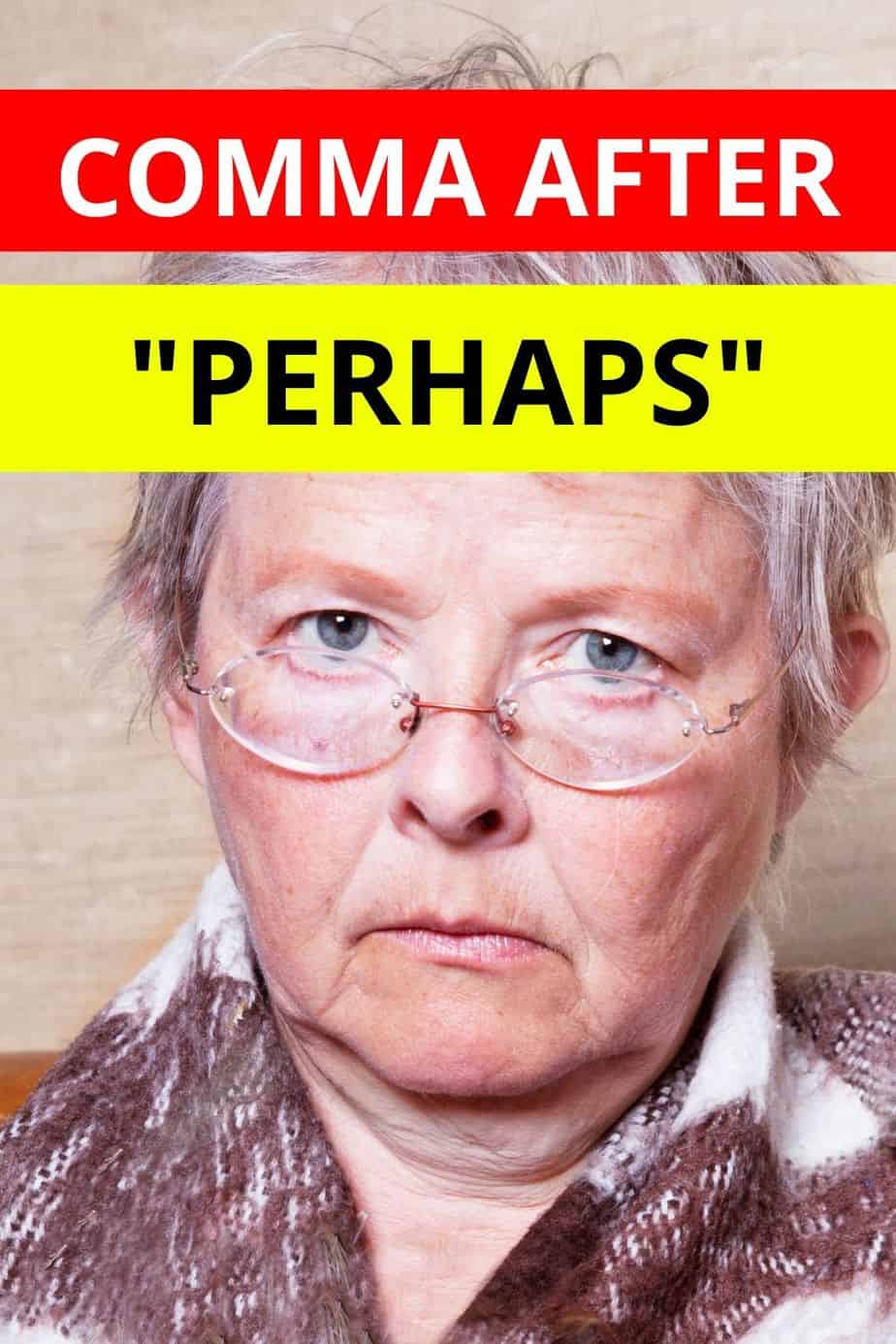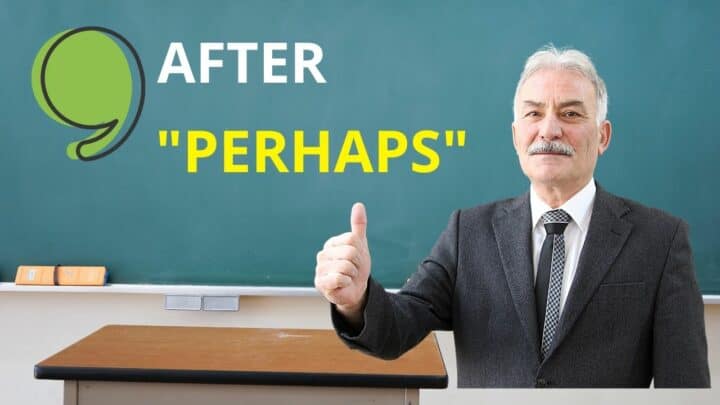One tricky part of learning about comma rules in English is that there are some situations in which a sentence looks like it should follow a regular rule that you have learned, but for some reason, there is an exception.<
Other times, it is because there is not a strict rule and the comma is optional.
Both of these things are often true with the word “perhaps” and commas.
Do you need a comma after “perhaps”?
You rarely need a comma after “perhaps” in a sentence. At the beginning of a sentence, you only need a comma if “perhaps” is the answer to a yes or no question and you are going on to explain your reply in the rest of the sentence. Otherwise, you do not need a comma unless you want to emphasize a pause. In the middle of a sentence, you usually do not need a comma after “perhaps.” The only exceptions are if you want to set it apart for emphasis. You would also use it in situations that would require a comma after most words: when it comes at the end of a nonessential element or part of a list.
“Perhaps” at the beginning of a sentence
You might assume that “perhaps” should have a comma after it at the beginning of a sentence because it is an introductory word. However, “perhaps” is an exception to this rule.
Let’s take a look at a sentence that starts with “perhaps”:
You don’t need a comma after “perhaps” in this sentence unless you want to indicate that there is a slight pause for some reason after saying the word.
In fact, a comma after “perhaps” could change the meaning of the sentence.
Here’s an example:
“Will Emma be joining us on the tour?”
“Perhaps, she is not feeling well today.”
Notice that in the first use of “perhaps” with no comma, the speaker is wondering how Emma is feeling and thinking that maybe she does not feel well, but the speaker does not know.
However, when it is a response to a yes/no question, separating “perhaps” with a comma means that the speaker knows that Emma is definitely not feeling well today.
In the first sentence using “perhaps” with no comma, the “perhaps” refers to not knowing how Emma is feeling. In the second sentence, “perhaps” refers to not knowing whether Emma will be joining them.
One other thing you should make note of is that the comma after “perhaps” in the second example is an informal way of writing this sentence.
In more formal writing, in order to avoid a comma splice or sentence fragment, that reply should really be two separate sentences: “Perhaps she won’t. She is not feeling well today.”
However, it is important to be familiar with the common and informal way of writing and speaking!

“Perhaps” in the middle of a sentence
Usually, you would not use a comma after “perhaps” in the middle of a sentence.
Here’s an example:
As is the case with “perhaps” at the beginning of a sentence, you would only use a comma around “perhaps” in the middle of a sentence if you needed to emphasize it for some reason.
Here’s an example:
In this sentence, setting “perhaps” apart with the commas makes it sound a little more sinister and serious.
“Perhaps” might also be set apart with commas in the middle of a sentence for humorous effect.
Here’s an example:
In this passage, it is clear that they are definitely overprepared for an afternoon on the beach!
Both the word “perhaps” and the extra emphasis of a pause around it indicates that the speaker is well aware that they are ridiculously overprepared.
Comma after “perhaps” at the end of a nonessential clause
In other sentence structures, the same rule for a comma after “perhaps” applies as it would for any other word.
If “perhaps” comes at the end of a nonessential element in a sentence, it should be followed by a comma.
A nonessential element is a part of the sentence that could be removed without changing its meaning.
Here’s an example:
If “perhaps” is part of a list, it should be followed by a comma:

Hey fellow Linguaholics! It’s me, Marcel. I am the proud owner of linguaholic.com. Languages have always been my passion and I have studied Linguistics, Computational Linguistics and Sinology at the University of Zurich. It is my utmost pleasure to share with all of you guys what I know about languages and linguistics in general.

